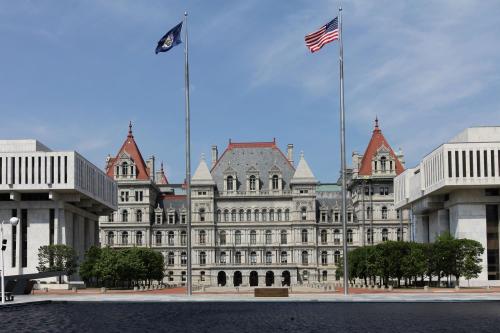When did we move from optimism to pessimism about the BRICS—and more specifically, about the sub-set of rising powers that are democracies?
I count myself among those who, perhaps naively, was optimistic about the democratic rising powers and relatively sanguine about China. Only Russia looked more worrying to me, and that has been proven in spades. China has turned more assertive more quickly than I anticipated, though there are still balancing forces in the relationship and all is not yet lost in the search for stable U.S.-China relations. But what about Brazil and India, along with the other rising democracies?
It’s true that there are positives here. After flirting with the authoritarian powers on Internet controls, Brazil found itself leading an effort on Internet governance informed by market realities and liberal values, broadly conceived. Why? Because while parts of its foreign ministry remain very conservative, Brazil is a market and a democracy and a civic polity in which the government can’t just dictate policy, and it discovered that its private sector wanted no part of a Russian or Chinese play for control of the Internet.
India ended up playing a very constructive role in global climate negotiations, despite the fact that it has more to lose than any other actor from a too-restrictive carbon regime in the coming decade. Indonesia was a constructive co-chair of the U.N.’s process on the sustainable development goals. All three have made important contributions on the development and food security agenda—and while that may not rise to the level of strategic interest in the United States, it matters a hell of a lot to large swathes of the rest of the world. All to the good.
Setbacks on the strategic stage
On strategic policy, it’s been a much more mixed picture, full of misadventure and missed opportunity.
Brazil and Turkey took a risk on their “Tehran gambit,” trying to produce a diplomatic outcome in a fraught topic. Their effort was not always well-conceived or well-executed, but the U.S. management of their engagement was worse—a sorry tale of White House and State Department incoherence and mixed signals. A bad outcome, but blame Washington more than Brasilia and Ankara.
On Responsibility to Protect (R2P) in Libya, Brazil, India, and South Africa were less convincing. There’s lots of blame to go around on Libya, and Western policy was incomplete and ultimately ineffective—but the BRICS critique of Western policy on Libya left much to be desired. On the other hand, in the aftermath of the fall of Gadhafi, the Brazilians offered a path forward—the concept of “responsibility while protecting” that did two things: it accepted the principle of R2P and it called for NATO to report to the Security Council when implementing U.N. mandates, as NATO had already done during Bosnia. Rather than grabbing the opportunity to cement buy-in from the global South to the R2P concept, the United States spurned the Brazilian overture. Bad outcomes; blame everyone.
The story of the rising democracies is far from over.
Where the rising democracies really lost their way was on Ukraine—namely their unwillingness to speak out against Russia’s violation of the most fundamental rule of international order: the prohibition against the acquisition of territory by force. Not so fast, say Indian and Brazilian diplomats: You, the United States, also violated the U.N. Charter in Kosovo, as well as in Iraq. But there was no Indian or Brazilian hesitation in criticizing U.S. actions at the time; so why the silence on Russia? I don’t think the argument holds that U.S. policy in Kosovo was equivalent to Russian policy in Crimea—but even if it were, Brazil and India and many others were quick to condemn U.S. policy, so on what conceivable basis should they provide succor and comfort to Russia on Ukraine?
Bit by bit
These are issues of policy and rhetoric and international regimes. Set against this, the gradual and careful but real Indian re-alignment towards Washington is the most important reality. Brazil has done little harm on strategic issues; on human rights and food security, it’s done real good. Indonesia has not yet had much impact on international order, but if all the nation does is remain stable and avoid new bouts of internal violence, its net contribution to order is positive. South Africa, I fear, may not be so stable for long, as it grapples with deep economic challenges and shocking levels of youth unemployment.
And then there’s Turkey. When a core NATO ally is in the business of eroding the rule of law and working together with Qatar to foster Muslim Brotherhood movements across the region, there’s a problem. When a core NATO ally is cozying up to Putin’s Russia, there’s a problem. But Recep Tayyip Erdoğan’s effort to forge closer ties with Putin have floundered on the rocks of Syria. If there’s any silver lining in that unfolding horror, it’s the collapse of Russia-Turkey ties and the beginnings of an effort by Erdoğan to find his way back to the West.
The story of the rising democracies is far from over. We have much to lose from rash judgment and much to gain from patient, careful diplomacy that nurtures relations with those forces in each capital that seek to play a constructive role vis-à-vis the order. Such a policy can be frustratingly, at times maddeningly, slow; nevertheless, haste does not good strategy make here.
Click here for Ted Piccone’s summary of some of the main findings of his new book, “
Five Rising Democracies and the Fate of the International Liberal Order
.” Harold Trinkunas has a follow-on post about Brazil here.



Commentary
The rising powers: A mixed bag for the international order
February 19, 2016